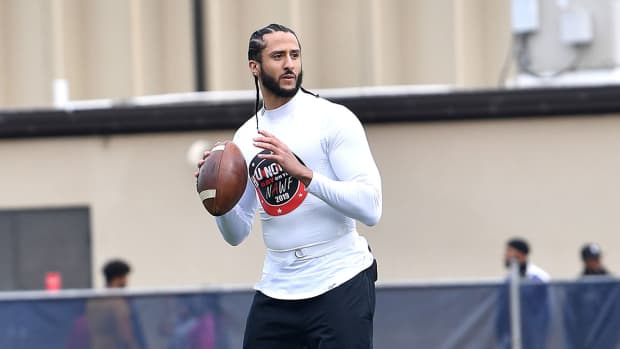On February 12, 1909, the organization that would later become the National Association for the Advancement of People of Color was founded by the influential and conscientious in the wake of staggering racism, both institutional and interpersonal.
Today, as the country is embroiled in one racially-charged incident after another, and with a thinly-veiled white nationalist sitting in the Oval Office, the resounding dialectic from many societal sectors is that racism has existed in a static yet transmutable form since before the charter of 1776 signified the creation of the United States of America.
While racism is a clear and present danger to African-Americans and all other non-black people of color who are looked upon as second class citizens, the primary historic target of organized, visceral and government-sanctioned racism has always been the descendants of kidnapped Africans that were dragged to America against their will.
The National Negro Committee, the early working title of the NAACP, included such black intellectual icons as W.E.B. DuBois, Ida B. Wells, Archibald Grimke, and Mary Church Terrell, among others.
The NAACP was incorporated a year later.
From a Shadow League interview with current NAACP President Derrick Johnson:
The Shadow League: There have been athletes who were activists in the past. Muhammad Ali most prominent among them. What do you think of the current line of activist-athletes that have been inspired by Colin Kaepernick?
Derrick Johnson: That’s an advancement for the broader community. It is a new group of individuals, but it is an old process that has been done for many years. Jack Johnson, the famous boxer, from time to time he used his platform to demonstrate his position on many issues. Of course, you mention Jim Brown, same thing, Harry Belafonte, using his platform was a huge determining factor during the civil rights movement, along with Sidney Poitier and Dick Gregory. So it is a pleasing opportunity to see many of the NFL players and NBA players but also actors and other entertainers continuously use their platforms to advance social justice particularly for African Americans.
The National Association for the Advancement of People of Color has been at the vanguard of almost every fight for the human and civil rights of black people in America. This includes sports.
Historically, professional and collegiate sports have acted as a pathway for many black folks to achieve the American dream of acceptance and advancement. It has also been where some of the toughest opponents of segregation and equality dug in their heels.
While at times cautious about jumping on board with changing trends in activism and community organizing, the National Association for the Advancement of Colored People always seems to make an effort to recognize individuals who have excelled in advancing the image, economic status, and general societal outlooks of people of African descent in America, and abroad in many cases.
Below is a brief listing of instances in which the NAACP spoke up for, supported or awarded some of the biggest names in American sports activism for the purpose of bettering the experience of black folk in this country.
Muhammad Ali
In 2009, the NAACP Image Awards bestowed the Greatest, aka Muhammad Ali, with its prestigious President’s Award. Ali, known for his daring stance against the United States draft, the war in Vietnam and for his charismatic and oftentimes flamboyant speaking style died in 2016 at age 74.
His grace in the ring was only challenged by the grace he exhibited outside of it.
Curt Flood
On the 50th Anniversary of Flood vs. Kuhn, there is a petition for Flood to be inducted into Cooperstown. It should have happened in 2019 when Harold Baines, Lee Smith, and others got in.
As legendary baseball writer Bill Rhoden said, “none of them has Flood’s revolutionary résumé, although each benefited from Flood’s act of defiance”
Curt Flood is best known for sacrificing his own career and sanity to introduce free agency to Major League Baseball, and the rest of American pro sports by proxy.
His idolization of Dr. Martin Luther King Jr and Jackie Robinson, who just broke the color line in 1947 with the Brooklyn Dodgers, drew the then impressionable 24-year-old to Mississippi to participate in a non-violent protest.
It would change his life forever. His sacrifice, and subsequent abandonment by other MLB players, caused a deep depression that resulted in a premature death in 1997 at 59 years old.
Flood, a historical icon to players who have salaries in the hundreds of millions now, was never appreciated by the MLB community while he was alive
LeBron James
Do we really need to tell y’all how dope Lebron James is, both on and off the floor? Do we need to tell you about all his philanthropic efforts, his charities and so forth? We didn’t think so.
But what you may not have known is he was bestowed with the NAACP Jackie Robinson Sports Award two years ago. LeBron’s legacy in basketball can only be supplanted by his continued philanthropic undertakings and charitable mindset, which will likely continue long after he’s retired.
Colin Kaepernick
The NAACP was one of the earliest and most ardent supporters of Colin Kaepernick from the time that he first took a knee through his victory over the National Football League in court, which led him to withdraw a collusion case that it appears he had a very high chance of winning.
Former NAACP president Cornell William Brooks reportedly compared Kap to Rosa Parks for his sacrifice and bravery. There aren’t many historical precedents in which a progressive-minded individual is able to have his metaphorical cake and eat it too.
His settlement amount is officially sealed thanks to a nondisclosure agreement with the NFL, but there are several reports that estimate his deal to be between $60 and $80 million. The subsequent shoe deals he’s signed with Nike and the Atlanta workout fiasco that pitted Kaepernick against rap mogul Jay Z
He’ll never play in the NFL again but will end up on the right side of history.



